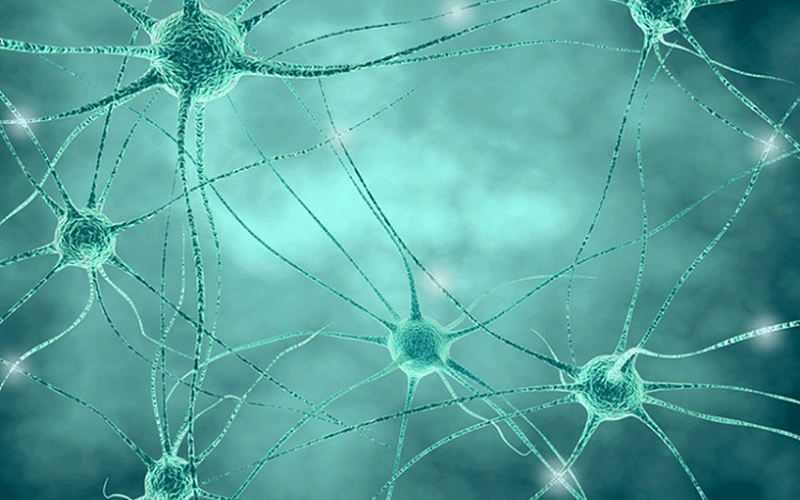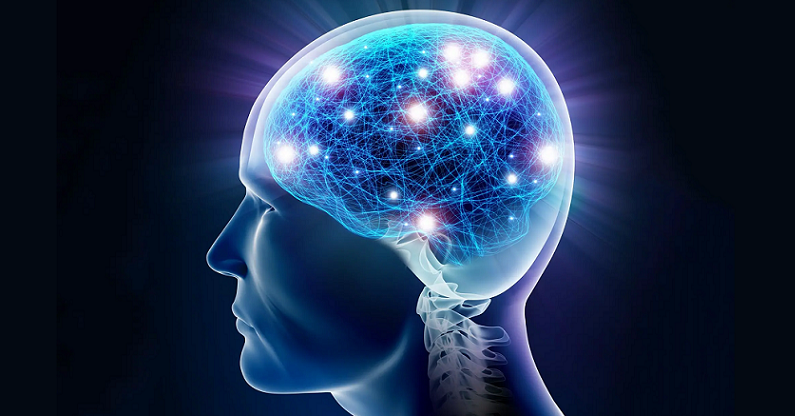
Gonadotropin-Releasing Hormone (GnRH) is important and well-known for its role in reproductive health, but its impact on cognitive processes is a burgeoning area of interest in neuroscience. Here we explore the biological mechanisms of GnRH, examining how this hormone is produced, how it interacts with brain receptors, and the cascade of effects it has on cognitive functioning. From learning and memory to mood regulation and attention, the influence of GnRH extends far beyond its traditional reproductive role.
Contents
Understanding Hormones and Brain Function
In an attempt to comprehend the cognitive impact of Gonadotropin-Releasing Hormone (GnRH), it’s essential to first establish a foundational understanding of the broader context in which it operates. Hormones, often described as the body’s chemical messengers, play a crucial role in regulating a myriad of physiological processes, including those in the brain.
Brief Overview of Hormones in Brain Health
Hormones are integral to the brain’s health and functioning. They travel through the bloodstream, influencing various aspects of brain activity. For instance, hormones like serotonin and dopamine are well-known for their roles in mood regulation, while others, such as cortisol, are critical in stress response and memory formation. The brain is not just a passive recipient of these hormonal messages but also plays a key role in regulating their production and release, creating a complex feedback loop.
The Role of Gonadotropin-Releasing Hormone (GnRH) in the Hormonal System
Within this vast hormonal landscape, GnRH holds a unique place. Primarily recognized for its role in controlling the release of other reproductive hormones, GnRH is produced in the hypothalamus and acts on the pituitary gland. It serves as the starting point for a cascade of hormonal interactions crucial for reproductive functions. However, recent research suggests that the influence of GnRH extends beyond reproduction, implicating it in various cognitive processes [1].
Interplay Between Hormones and Cognition
The interplay between hormones and cognition is an area of growing interest and importance. Hormones like GnRH don’t just regulate bodily functions; they also have significant implications for our cognitive health. They can affect how we think, learn, remember, and even how we experience emotions. Understanding this interplay is not just about identifying the hormonal impact on the brain but also about comprehending how changes in cognitive states can, in turn, influence hormonal balance. This bidirectional relationship is key to appreciating the full scope of GnRH’s role in cognitive health.

The Biological Mechanism of Gonadotropin-Releasing Hormone (GnRH)
To fully appreciate the cognitive impact of Gonadotropin-Releasing Hormone (GnRH), it’s crucial to understand its biological mechanism. This hormone, although small in structure, plays a significant role in the hormonal orchestra of the human body.
Production and Release of GnRH
GnRH is synthesized in a specific area of the brain known as the hypothalamus. This region acts as a crucial control center, managing various autonomic processes in the body. GnRH neurons in the hypothalamus are responsible for the synthesis and periodic release of this hormone into the bloodstream. This release is pulsatile, meaning it occurs in bursts, a pattern essential for its effective functioning. The frequency and amplitude of these pulses can vary, influencing the downstream release of other hormones like follicle-stimulating hormone (FSH) and luteinizing hormone (LH), which are critical for reproductive health [2].
GnRH Receptors in the Brain
Once released, GnRH travels to its target site – the pituitary gland. Here, it binds to specific receptors on the surface of pituitary cells. These receptors are finely tuned to detect the presence of Gonadotropin-Releasing Hormone, responding to its pulsatile release pattern. Interestingly, GnRH receptors are not limited to the pituitary gland; they are also found in various brain regions. This widespread distribution suggests that GnRH’s influence extends beyond the realm of reproductive health, potentially impacting cognitive functions and brain health more broadly.
GnRH Signal Transduction and Its Effects
The binding of GnRH to its receptors triggers a complex process known as signal transduction. This involves a series of biochemical reactions inside the cell that result in the release of FSH and LH. However, the impact of this signal transduction goes beyond the reproductive hormones. It is hypothesized that the activation of Gonadotropin-Releasing Hormone receptors in the brain might influence neural circuits involved in cognitive processes such as memory, learning, and emotional regulation. This indicates a multifaceted role of GnRH, linking reproductive health with cognitive functions.

GnRH and Cognitive Processes
Having established the biological mechanisms of Gonadotropin-Releasing Hormone (GnRH), we now turn our attention to its direct impact on cognitive processes. This hormone, traditionally linked to reproductive health, also plays a potentially significant role in various aspects of cognitive functioning. In this section, we’ll explore how GnRH influences key cognitive domains such as learning, memory, mood, and attention.
Impact of GnRH on Learning and Memory
Learning and memory are fundamental cognitive processes, essential for daily functioning and overall quality of life. Recent research suggests that GnRH may have a notable influence in these areas. Studies indicate that GnRH can affect neuronal plasticity, the brain’s ability to change and adapt in response to new information. This plasticity is a crucial component of learning and memory formation. Moreover, Gonadotropin-Releasing Hormone has been observed to modulate the release of neurotransmitters, which are vital for the encoding and retrieval of memories [3].
Influence of GnRH on Mood and Emotional Regulation
Mood and emotional regulation are another critical aspect of cognitive health where GnRH appears to have a significant role. The hormone’s receptors, found in brain regions involved in emotion processing, suggest a potential pathway through which GnRH can influence emotional states. Fluctuations in Gonadotropin-Releasing Hormone levels, as seen in various stages of reproductive life, have been correlated with changes in mood and emotional well-being, indicating a more profound connection between this hormone and emotional regulation.
Effects of GnRH on Attention and Executive Functioning
Attention and executive functioning encompass the ability to focus, plan, make decisions, and regulate behaviors. There is emerging evidence that GnRH may play a role in these cognitive domains as well. While the exact mechanisms are still being unraveled, the presence of GnRH receptors in areas of the brain associated with executive functions points to a possible link. This relationship could be especially relevant in understanding how hormonal changes across the lifespan, including those related to GnRH, might impact cognitive abilities related to attention and decision-making [4].
Research Findings on GnRH and Cognition
The exploration of Gonadotropin-Releasing Hormone (GnRH) and its impact on cognition is a relatively new but rapidly growing field in neuroscience. This section highlights some of the pivotal research findings in this area, offering insights into how GnRH influences cognitive processes. We will look at key studies, analyze their results, and discuss the limitations and gaps in current research, providing a comprehensive view of our current understanding.
Key GnRH and Cognition Studies and Their Results
Several groundbreaking studies have shed light on the cognitive implications of GnRH. For example, research involving animal models has demonstrated that alterations in GnRH levels can lead to changes in memory performance and spatial learning abilities. In humans, studies have observed fluctuations in cognitive functions correlating with varying levels of GnRH, particularly in scenarios like menopause or treatments affecting GnRH production. These studies suggest a direct link between GnRH levels and cognitive capabilities, although the exact nature of this relationship is still under investigation [5].
Analysis of GnRH and Cognition Data and Trends
Upon analyzing the data from these studies, a trend emerges: GnRH appears to have multifaceted effects on the brain, impacting areas such as memory, learning, and emotional regulation. However, these effects are not uniform across all individuals, indicating that factors like age, sex, and overall health may modulate the cognitive impact of GnRH. This variability underscores the complexity of hormonal influences on the brain and highlights the need for personalized approaches in understanding and treating cognitive health issues.
Limitations and Gaps in Current Research Involving GnRH and Cognition
Despite these intriguing findings, the current body of research on GnRH and cognition has limitations. Many studies are preliminary or based on small sample sizes, which can affect the generalizability of the results. There is also a lack of longitudinal studies, which are essential to understand the long-term effects of GnRH on cognitive health. Furthermore, most current research focuses on extreme variations in GnRH levels, such as those induced by medical conditions or treatments, leaving the effects of subtle, natural fluctuations largely unexplored.
References
[1] Gonadotropin-Releasing Hormone (GnRH)
[2] GnRH therapy could improve cognitive deficits
[3] Gonadotropin Releasing Hormone and Cognition
[4] Gonadotropin releasing hormone (GnRH): a hormone therapy boosts cognition
[5] A role for GnRH in olfaction and cognition

